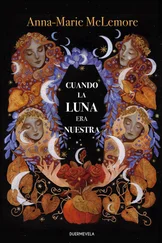Anna-Marie McLemore - The Weight of Feathers
Здесь есть возможность читать онлайн «Anna-Marie McLemore - The Weight of Feathers» весь текст электронной книги совершенно бесплатно (целиком полную версию без сокращений). В некоторых случаях можно слушать аудио, скачать через торрент в формате fb2 и присутствует краткое содержание. Год выпуска: 0101, Издательство: St. Martin’s Press, Жанр: Старинная литература, на английском языке. Описание произведения, (предисловие) а так же отзывы посетителей доступны на портале библиотеки ЛибКат.
- Название:The Weight of Feathers
- Автор:
- Издательство:St. Martin’s Press
- Жанр:
- Год:0101
- ISBN:нет данных
- Рейтинг книги:4 / 5. Голосов: 1
-
Избранное:Добавить в избранное
- Отзывы:
-
Ваша оценка:
- 80
- 1
- 2
- 3
- 4
- 5
The Weight of Feathers: краткое содержание, описание и аннотация
Предлагаем к чтению аннотацию, описание, краткое содержание или предисловие (зависит от того, что написал сам автор книги «The Weight of Feathers»). Если вы не нашли необходимую информацию о книге — напишите в комментариях, мы постараемся отыскать её.
The Weight of Feathers — читать онлайн бесплатно полную книгу (весь текст) целиком
Ниже представлен текст книги, разбитый по страницам. Система сохранения места последней прочитанной страницы, позволяет с удобством читать онлайн бесплатно книгу «The Weight of Feathers», без необходимости каждый раз заново искать на чём Вы остановились. Поставьте закладку, и сможете в любой момент перейти на страницу, на которой закончили чтение.
Интервал:
Закладка:
What curse had he left on her? What maldición were her burns hiding?
She’d throw ice cubes at the next nurse who tried to tell her “that boy saved your life.” They didn’t know anything about the Corbeaus. If they did, they’d never let them past the town lines.
The knowledge that his hands had been on her kept clawing through her skin. Maybe her family would leave her here, like starlings abandoning a nest, the sky blue of their eggs tainted by a child’s fingers.
Lace felt for the tips of her hair. They should have been at her waist. Instead, the ends bunched above her breasts. She was missing almost a foot of her hair.
The nurse drew a vial’s contents into a syringe.
“What is that?” Lace asked.
“You’ll thank me later,” the nurse said.
Lace squinted against the sun. It crawled up, a blind at a time, sharpening the light, and she slept.
She woke to her mother and Abuela whispering. But she couldn’t open her eyes, and they did not notice the twitch of her eyelashes.
“She’ll heal,” said her mother’s voice.
“I can’t put her back in the show,” Abuela said. “Not looking like this.”
“That’s what you’re thinking of?” Her mother huffed out a breath through her nose, like air wisping from a tire. “Whether you have your sirena ?”
Abuela gripped a handful of Lace’s hair, the smell of her perfume warm off her wrist. Even the slight pulling tugged at Lace’s scalp, lighting up the roots.
“What will she do?” Abuela asked. “Wear a wig into the water?”
Pain fanned out through Lace’s head, and the voices flickered to nothing, like a bulb burning out.
Lace opened her eyes to her father’s hands leaving a clean dress folded on the bedside table. She recognized his hands without seeing his face, those calluses from soldering resistors at a maquiladora so he could save up enough money for school.
She tried to speak, tried to reach out to those hands. But her own hands were so heavy she could not lift them. He patted the dress, as though telling it not to go anywhere, kissed Lace’s hair, and then was gone.
She woke up scratching at her own skin, dreaming of rain. She dragged her fingers over her arms, trying to get the drops off. But it kept falling, and took her under.
The next time she opened her eyes, Tía Lora stood over her, mouthing a prayer. Her tongue flashed between her teeth, like soap in the ring of a bubble wand.
Her hands clutched a ball of pink cloth. Every time her fingers tightened or loosened their grip, the fabric shimmered like the inside of a conch shell.
Lace couldn’t move enough to cry, so the trembling stuck at the back of her throat. This poor woman. All she’d wanted was a child, and she’d lost two, each before they could be born. Both had slipped from her womb like water. Then the Corbeaus had killed her husband before they could try again. So Tía Lora made the younger Palomas her children. She taught Oscar to make foghorn sounds by blowing into empty soda bottles. She showed Reyna and Leti how to tweeze their eyebrows, not so much, so they wouldn’t look surprised the way their mother always did.
And Lace. She had taught Lace to sew, to bead. To make corn and hot water and sugar into atole that made her younger cousins sleep. To love dry lightning as much as candles in glass jars. “Because for one second, all that light, you see everything. Maybe you don’t know what you’ve seen, but you’ve seen it, and it goes with you.”
Los enemigos del hombre son los de su propia casa.
A man’s enemies are those of his own house.
The girl in the car’s side mirror looked both drowned and burned.
Lace raised her hand to her face. So did the girl. They both traced fingers over their foreheads and noses. Lips, and glue-stiff eyebrows. Left cheek, then right. The features were the same, shapes they both knew, but the feel had changed, some spots rough as salt, others smooth and raw.
She wanted to tell her father about the Corbeau boy touching her, so he could tell her it was alright, that after a week’s worth of showers she wouldn’t even remember. Her father never stood for superstitions. He had changed his last name only because his own meant something so hateful none of the Palomas would say it. He put little stock in las patrañas y los cuentos de viejas, the fairy stories and old wives’ tales that ruled this family. To Barto Paloma, the Corbeaus’ feathers and the Palomas’ scales were just aberrations in biology, no different than an algae bloom lighting up the ocean like opals.
But the shame of el gitano holding her in his arms, taking her from the woods, her body against his chest, pressed down on her. She couldn’t say it, not even to her father.
“Martha missed you,” her father said. “She says a couple nights in that room alone is enough.”
“A couple nights?” Lace asked. It had felt like a week, two.
Lace picked at a cut on her lower lip. So did the girl. The morphine wore off, and both Lace and the girl stared, each wondering how the other had gotten so ugly.
Her father parked the station wagon in the motel lot. Her family waited in the lobby. They all offered stiff hugs, hands only, space between their bodies. Except Tía Lora, who pulled her close and whispered, “You look beautiful, mija .” And Martha, la sirena anaranjada, who combed her hands through Lace’s hair and said, “Don’t worry, I kept the boys out of fights for you.” And Lace’s mother, who gripped her so hard pain pulsed through her body. “You’re fine,” her mother whispered. “You’re just fine.”
Lace’s younger cousins asked was it true that she’d gotten glued to the ground, and was it true that a ghost unstuck her. “People saw him,” Reyna and Leti’s little sister said. “But then he just disappeared,” Emilia’s five-year-old son said.
Lace shushed them, not wanting anyone to think too hard about how she’d gotten to the hospital.
When they thought she wasn’t looking, her uncles shook their heads at the lobby carpet. Her aunts dabbed at their lower eyelids, as though she’d died.
Their pity filled her arms and made her tired. She carried it back to her and Martha’s room, wavering under the weight.
Lace took off her dress and caught her reflection in the turned-off television. In the dark glass, she almost looked the same. Her mother’s nose, her father’s straight brow bone, her middle aunt’s sloped shoulders.
She turned. Even in the dim glass, her back looked covered with brandy rose petals, crushed and half-withered. But a handful of clean, pale coins still arced across her lower back. Las escamas . The scales that marked her as a mermaid.
She went to the bathroom mirror, turning her back to the glass. The birthmarks shined in the overhead light. Almost iridescent. The burning rain had left them raw and a little pink, but no scars crossed them.
They’d been spared, as though Apanchanej ’s own fingers had shielded them. The rain should have burned her escamas as badly as her cheek. But they were still on her, whole and unmarred, proof that she would live and swim, reach her hands through the sheets of light that floated through the river, turn her body in the same spring as Abuela .
The air in the room felt cool and thick as water. It rushed around her, clothed her like kelp ribbons. She touched her hair to check if it was floating. She felt the weight of shells and river pearls holding her breasts. By refusing to be burned away, those escamas had written these things onto her body. They were new birthmarks, unseen but true.
Читать дальшеИнтервал:
Закладка:
Похожие книги на «The Weight of Feathers»
Представляем Вашему вниманию похожие книги на «The Weight of Feathers» списком для выбора. Мы отобрали схожую по названию и смыслу литературу в надежде предоставить читателям больше вариантов отыскать новые, интересные, ещё непрочитанные произведения.
Обсуждение, отзывы о книге «The Weight of Feathers» и просто собственные мнения читателей. Оставьте ваши комментарии, напишите, что Вы думаете о произведении, его смысле или главных героях. Укажите что конкретно понравилось, а что нет, и почему Вы так считаете.












